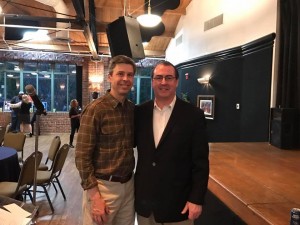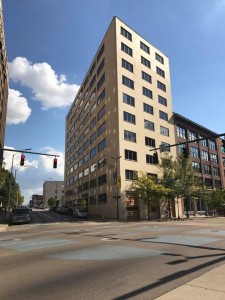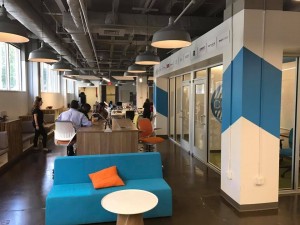Last week I’m in Chattanooga, TN doing a little research into how the city is reinventing itself for the 21st century.
Like Westfield is doing now, Chattanooga established its own high-speed gigabit fiber optic network across the entire city. And just like Westfield, the network was rolled out by its municipal utility, the Electric Power Board (EPB). The network was completed in 2010.
Since building out the gigabit infrastructure, Chattanooga has been very successful at attracting new businesses into the city. In just the last three years, they have successfully doubled the population of their downtown, according to their mayor, Andy Burke, who I spoke with while visiting. And according to an independent study from the University of Tennessee, the network has created between 2,800 and 5,200 jobs and resulted in $1 billion
in economic benefits.
This didn’t happen by accident. It required a concerted and conscious effort. For example, to leverage their high-speed interest network, they established an “Innovation District” in downtown Chattanooga. Billed as the “first mid-sized city to designate an innovation district,” the idea behind the effort is to create a concentration of businesses and other resources that work together to foster and encourage economic development opportunities. Their goal is to establish a kind of mini Silicon Valley in the South.
As part of my research of the Innovation District and the EPB’s gigabit fiber network, I spent a little time visiting Allison Reedy, the COO of a non-profit organization called CoLab, established as what’s called an “accelerator” to help small businesses get off the ground and become successful. CoLab is funded with both private and government funds. Ms. Reedy tells me that having innovators in close physical proximity to each other has helped tremendously with sparking collaboration and partnership opportunities for new businesses.
CoLab occupies part of the first floor of a building once owned by the City of Chattanooga. The city issued an RFP to private developers that
required them to develop the property into a facility that could help small businesses get off the ground. Now privately owned, the “Innovation Center” houses office space which can be both rented and shared by upstart businesses.
Chattanooga’s parallels to Westfield are quite striking. In the near future, Westfield will issue an RFP for a new building in downtown Westfield on the corner of Arnold and Elm. I think we should consider investigating using the new building to establish our own version of Chattanooga’s Innovation Center here in Westfield. If Chattanooga can become the first mid-sized city to establish an Innovation District, why can’t Westfield tout itself as the first small city to do the same?
This is just one idea. Obviously a lot more planning and consideration needs to go into this idea and others we may have to making the most of our fiber optic network. But I’m convinced that Westfield needs to think bigger than we currently are. We have a lot of knowledgeable and talented people in Westfield and I believe that if we we put the effort in, we can do a lot to help promote economic development and move Westfield squarely into the 21st century.
I’m looking forward to exploring these ideas further with my community and other leaders. Earlier this year, with the support of Council President Brent Bean, I passed a resolution to establish an economic development commission and I hope these possibilities can be explored in greater depth. I will be actively seeking members for this advisory commission over the coming weeks.





